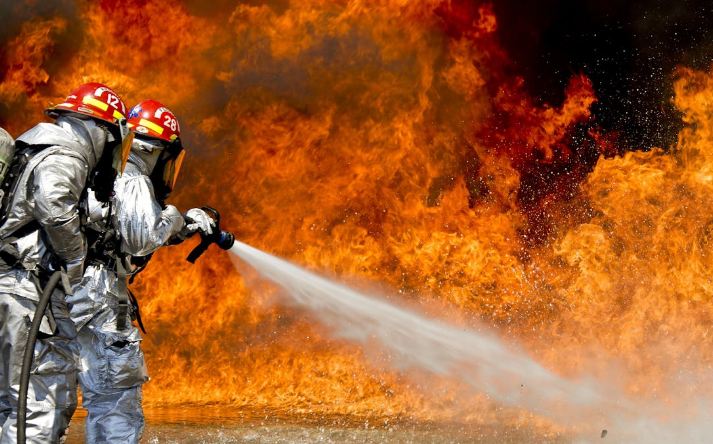Understanding the Importance of Fire Prevention
Fire can strike anywhere, at any time, causing devastating damage to homes and businesses. While fire restoration Forth Worth services can help recover from a fire, prevention is always the best strategy. By taking proactive steps to improve fire safety and preparedness, you can significantly reduce the risk of a fire occurring in your home or workplace.
Common Causes of Fires
To prevent fires, it’s essential to understand what typically causes them. Here are some of the most common culprits:
- Electrical issues
- Cooking accidents
- Heating equipment malfunctions
- Smoking materials
- Candles
- Flammable liquids
- Children playing with fire
You and your loved ones can live in a safer environment if you take care of these possible risks.
Essential Fire Prevention Measures
Electrical Safety
One of the main causes of flames is electrical problems. To minimize this risk:
- Regularly inspect electrical cords for damage
- Avoid overloading outlets
- Use surge protectors for valuable electronics
- Have a licensed electrician check your wiring every few years
Kitchen Safety
The kitchen is often the heart of the home, but it’s also a common site for fires. Follow these tips:
a) Never leave cooking food unattended
b) Keep flammable items away from the stove
c) Clean grease buildup regularly
d) Have a fire extinguisher easily accessible in the kitchen
Heating Equipment Safety
During colder months, heating equipment can pose fire risks. Stay safe by:
- Keeping space heaters at least 3 feet away from flammable objects
- Having your furnace inspected annually
- Cleaning chimneys and fireplaces regularly
- Using fireplace screens to contain sparks
Smoking Safety
If you or someone in your household smokes:
- Always smoke outside
- Use deep, sturdy ashtrays
- Before tossing them, wet the butts of cigarettes.
- Never smoke in bed or when drowsy
Candle Safety
Candles can create a lovely ambiance but require caution:
a) Keep candles at least 12 inches away from anything flammable
b) Use sturdy candle holders
c) Never leave candles burning unattended
d) As a safer option, think about utilizing LED candles without flames.
Creating a Fire Safety Plan
Having a well-thought-out fire safety plan can make a significant difference in an emergency. Here’s how to create one:
- Install and Maintain Smoke Alarms
- Put smoke detectors in your home on each floor.
- Test alarms monthly
- Replace batteries annually or as needed
- Replace smoke alarms every 10 years
- Plan Your Escape Routes
Determine two routes out of every room in your house. Ensure that every member of your home knows these paths.
- Designate a Meeting Place
Choose a spot outside your home where everyone should gather in case of a fire.
- Practice Your Plan
Conduct fire drills at least twice a year to ensure everyone knows what to do.
- Teach Fire Safety to Children
Educate children about the dangers of fire and what to do in case of an emergency.
Fire Extinguisher Basics
Having fire extinguishers in your home can help you tackle small fires before they grow out of control. Remember the PASS technique:
- Pull the pin
- Aim low at the base of the fire
- Squeeze the handle
- Sweep from side to side
Make sure to have the right type of extinguisher for different areas of your home.
Regular Maintenance and Inspections
Prevention is an ongoing process. Regular maintenance can help identify and address potential fire hazards:
- Clean dryer lint traps after each use
- Keep your yard clear of dry leaves and debris
- Store flammable liquids properly in approved containers
- Check and maintain outdoor electrical equipment
The Role of Technology in Fire Prevention
Modern technology can enhance your fire prevention efforts:
- Smart smoke detectors can alert you to fires even when you’re away from home
- Flame-resistant materials can slow the spread of fire
- Home security systems often include fire monitoring services
While these technologies can be helpful, they should complement, not replace, basic fire safety practices.
Community Involvement and Education
Fire safety isn’t just an individual responsibility—it’s a community effort. Consider:
- Participating in local fire safety workshops
- Sharing fire prevention tips with neighbors
- Supporting local fire departments’ educational initiatives
By working together, communities can create safer environments for everyone.
Preparing for the Worst
Despite our best efforts, fires can still occur. Being prepared can make a significant difference:
a) Keep important documents in a fireproof safe
b) Create a home inventory for insurance purposes
c) Have an emergency kit ready with essentials like water, food, and first aid supplies
d) Know how to shut off utilities in case of an emergency
The Importance of Professional Assistance
While these prevention tips can significantly reduce your fire risk, sometimes professional help is necessary. If you’ve experienced a fire, seeking expert fire restoration in Fort Worth can ensure your property is properly cleaned and restored, reducing the risk of future issues related to fire damage.
Remember, fire safety is an ongoing process. By staying vigilant, maintaining your home, and being prepared, you can significantly reduce the risk of fire and ensure you’re ready to act if one does occur. Your efforts in fire prevention not only protect your property but, more importantly, safeguard the lives of you and your loved ones.


